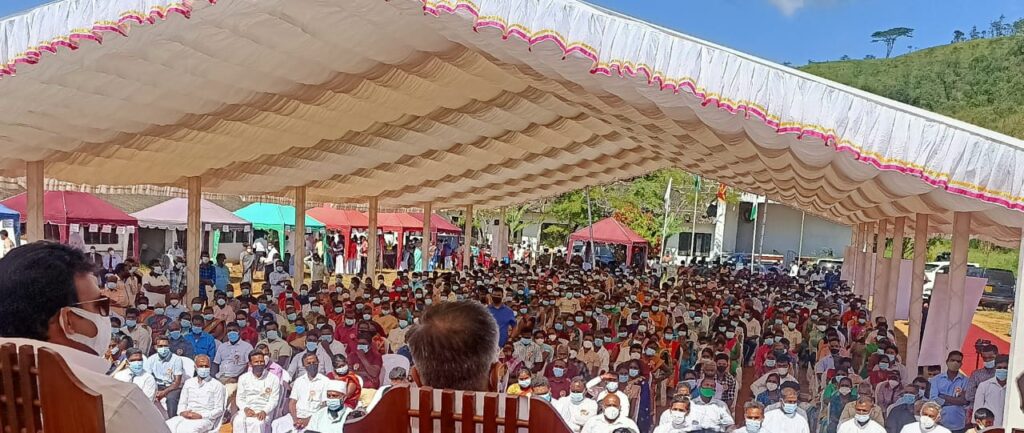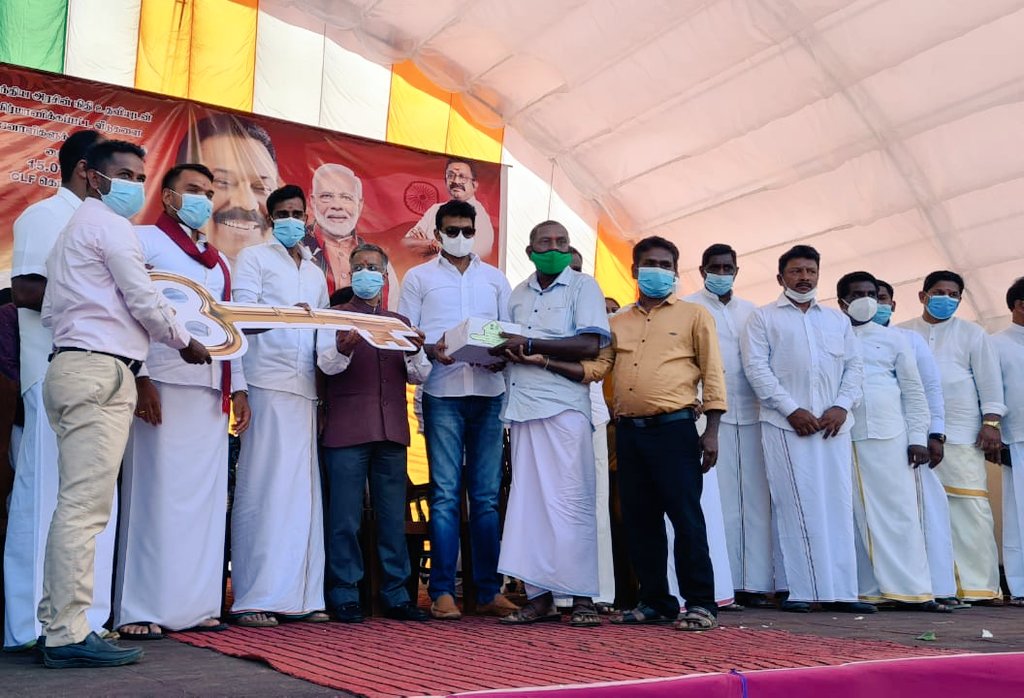Indian High Commissioner Gopal Baglay, Minister of Youth and Sports Namal Rajapaksa, Minister of State for Estate Housing and Community Infrastructure Jeevan Thondaman jointly handed over house keys to more than 1000 beneficiaries from plantation areas of Sri Lanka at a public event in Kotagala on 15 January 2022. Members of Parliament S.B Dissanayake and M. Rameshwaran and other dignitaries took part in the event.
Speaking on the occasion, High Commissioner conveyed Pongal greetings in Tamil. He stressed that India will stand with Sri Lanka and continue to work for the development of Indian origin Tamil community. He noted that the community was an organic link between India and Sri Lanka and underlined that the Festival of Pongal represented shared civilizational ties between the two countries.

Handed over houses were built under the third phase of the Indian Housing Project. 4000 houses are being constructed with grant assistance from Government of India in planation areas, spread across seven Districts of Sri Lanka, under this phase for the estate workers in Sri Lanka. Around 3000 houses have already been handed over to beneficiaries till date and handing over of close to 750 houses is being scheduled under this phase. Remaining houses are at various stages of implementation.
Indian Housing Project is a flagship development assistance programme in Sri Lanka which is being carried out in different phases. 46,000 houses were built/repaired in Northern and Eastern Provinces of Sri Lanka in the first two phases. Another 10,000 houses shall be constructed in the plantation areas in the next phase. This would take Government of India’s overall commitment under the project to 60,000 houses.

The dignitaries took part in a traditional ‘Maatu Pongal’ ceremony prior to the handing over event, which was attended by thousands and featured cultural performances.
Celebration of Pongal in Sri Lanka attests to the abiding cultural linkages between the people of India and Sri Lanka as well as the shared heritage. Development assistance is a key pillar of bilateral relationship between the two countries. At a total quantum of around USD 3.5 billion, development assistance from India cuts across sectors spanning from infrastructure development to all aspects of daily human lives such as education, health, livelihood, among others. Estate workers from plantation areas have been at the centre of the such assistance and several projects implemented through grant assistance by Government of India including the 150-bed hospital in Dickoya, multi-purpose hall in Saraswathy Central College in Pussellawa etc reinforce India’s ongoing focus on the region under the ‘Neighbourhood First’ policy.